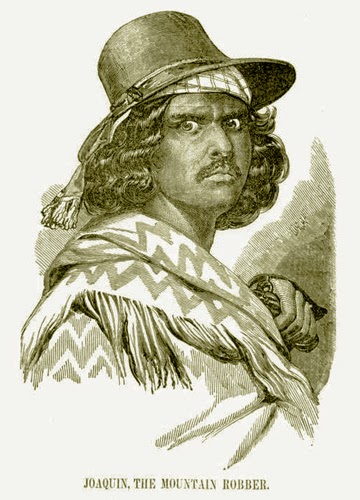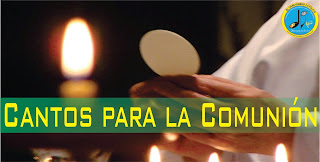Siempre que tengo oportunidad, declaro que suelo sentirme en deuda con el arte africano, sobre todo porque como el nombre del blog indica, el material que presento es un reflejo de lo que puede encontrarse en la red, y por razones obvias el grueso de material e información no proviene de artistas africanos.
Hoy, 25 de Mayo, se celebra el Día de mi África, así que a sugerencia de mi fiel seguidora y colaboradora Shirley, que tuvo a bien recordarme esto, me uno presentando a una estupenda fotógrafa camerunesa cuya obra, además, hace especial hincapié en la condición de la mujer africana.
Whenever I have an opportunity, I declare that I often feel indebted to African art, especially because as the blog name suggests, the material I present is a reflection of what can be found on the Net, and for obvious reasons the bulk material and information does not come from African artists.
Today, May 25, Africa Day is celebrated, so following the suggestion of my faithful follower and collaborator Shirley, who was kind enough to remind me of this, I join in presenting a great Cameroonian photographer whose work also places special emphasis on the condition of African women.
___________________________________________________________________
Angèle Etoundi Essamba
Angèle Etoundi Essamba nació en Douala, Camerún, y se crió en Yaoundé. De joven se fue a París, donde recibió su educación. Luego se trasladó a Holanda, donde se instruyó en la Nederlandse Fotovakschool (Escuela profesional de fotografía de Holanda). Es una artista comprometida, involucrada en su práctica creativa: una reflexión sobre la identidad de la mujer, respeto al individuo y lucha por la humanidad. Vive y trabaja con los ojos bien abiertos. Durante 20 años, ha observado el mundo a través de las mujeres que fotografía.
Essamba tiene una larga y reconocida trayectoria en la realización de un registro fotográfico de la mujer negra. En su obra, ella rompe con las representaciones estereotípicas de un África arrasada por hambrunas, epidemias y guerras, celebrando en cambio la riqueza cultural y diversidad del continente.
"Eye-Dentity 6", 2010
"Femme du monde / Mujer del mundo / Woman of the World 7-1", 2005
«Mis recuerdos son de vivir en una familia muy grande, con tíos, tías, primos, hermanos, sobrinos, hermanas... todos viviendo en completa armonía carente de esfuerzos.
Mi abuelo era un patriarca respetado, que se ocupaba de toda la familia. Nadie se atrevía a pelearse en presencia de mi abuelo.
Mi recuerdo de mi abuelo es que era muy estricto, una persona muy disciplinada; pero siempre era justo.
Aún recuerdo aquellos días con gran cariño. Era una vida sin preocupaciones ya que mi abuelo se ocupaba de todo.
Mi padre se mudó a Francia cuando yo era muy joven, y fui la primera de sus hijos que se le unió.
Lo que más recuerdo del viaje es que estaba vestida con un extravagante vestido rosa, con unos horribles zapatos rojos.»
Izq./ Left: "Corps et fruit / Cuerpos y fruta / Bodies and Fruit 10", 1998
Der./ Right: "Chasseresse / Cazadora / Huntress 2", 1990
"Noir / Negra / Black", 2001
«Las cuestiones humanas siempre me han fascinado. También creo que mi nostalgia de identidad, de mi identidad africana, tras tantos años de no ver mi tierra natal y sus entornos más familiares, influenciaron en gran medida mi elección. Necesitaba encontrar una salida, una vía para expresar mi nostalgia.
Además, siempre he estado fascinada por las imágenes y la necesidad de capturar las cosas en el espacio y el tiempo.
De niña solía maravillarme mucho con las cosas, y la necesidad de expresar esa admiración encontró su expresión en mis fotografías. También está la necesidad de inmortalizar momentos, gente, sentimientos, emociones. Siempre he tenido ese anhelo de capturar y compartirlo todo. La fotografía ofrece a la gente otra visión; la hace pensar. Podría decir que la fotografía me escogió a mí, y no a la inversa. O nos escogimos mutuamente.»
«La mujer merece ser celebrada. Las mujeres son las portadoras y transmisoras de vida.
Como mencionaba antes, mis obras son en su mayoría autorretratos. Quería crear mi propia identidad; mostrar la mujer que YO SOY, y cuán orgullosa estoy de ser quien soy.
La pregunta de ¿quién soy yo en este mundo? es una de las que siempre han agitado mi pensamiento.»
"Coup d´oeil, coup de coeur 2", 2007
«He intentado, a través de mis trabajos, crear mi propia conciencia. El tipo de mujer negra que veo retratada en los medios del mundo occidental no refleja a las mujeres negras que conozco y con las cuales me relaciono.
Las mujeres africanas no son débiles ni pasivas, ¡al contrario!
Las mujeres africanas no sólo son hermosas; son fuertes, elegantes y con mucha gracia.
De hecho no es difícil hacer esto ya que no requiere distorsión. Tú no puedes mostrar la fuerza donde no existe.
Intento retratar a la mujer africana de forma tan realista como sea posible. El resultado son las fotografías que puedes ver, de mujeres orgullosas, seguras de sí mismas, en su estado natural.
Por supuesto, siempre hay una pequeña coreografía aquí y allá, pero las mujeres que fotografío son artículos genuinos que simplemente están siendo ellas mismas.»
"Appartenance / Pertenencia / Belonging 2", 2007
Izq./ Left: "Devoilement / Develos / Unveiling 9", 2007
Der./ Right: "Panoplie de couleurs / Panoplia de colores / Panoply of Colors 1", 2007
Angéle ha creado una fundación: la Fundación Hogar Essamba.
«La fundación es para ayudar a las chicas a recuperar su autoestima. Hacemos esto no sólo a través de la fotografía, sino que organizamos otras formas de arte (canto, baile, pintura, etc...)
La idea es captar entre 10 y 15 chicas por vez, y ofrecerles una instrucción inicial.
Naturalmente, el dinero es siempre un reto, así que agradecemos donaciones en dinero o de otro tipo, como material artístico.»
"Double dos", 2002
Angèle Etoundi Essamba
Angèle Etoundi Essamba was born in Douala, Cameroon, and grew-up in Yaoundé. As a young girl, she went to Paris where she received her education. Later on she moved to the Netherlands where she trained at the Nederlandse Fotovakschool (Netherlands professional school of photography). She is a committed artist involved in her creative practice, in a reflection on the identity of the woman, in the respect of the individual, in the struggle for humanity. She lives and works with eyes wide open. For twenty eights years, she observes the world through the women she photographs.
Essamba has a long and recognized trajectory in realization of photographical register of black women. In her work, she breaks from stereotypical representations of an Africa torn by famines, epidemics and wars, instead celebrating the cultural richness and diversity of the continent.
"Heritage / Patrimonio", 1999
"Le Visionaire / La visionaria / The Visionaire"
«My recollections were that of living in a very big, extended family of uncles, aunties, nieces, brothers, cousins, sisters with everyone living in complete harmony devoid of strive.
Grandfather was a well-respected Patriarch who looked after the entire family. No one dare to fight in the presence of grandfather.
My memory of grandfather was that of a strict, very disciplined person; but he was always fair.
I still recollect those days with huge fondness. It was a life of no-worries as grandfather was always there to take care of things.
My father moved to France when I was quite young, and I was the first of his children to join in.
What I quite remember about the journey was that I dressed up in a flamboyant Pink dress with some wicked red shoes.»
Izq./ Left: "Profil africain / Perfil africano / African Profile", 1986
Centro / Center: "Regard / Mirada / Look 2", 1998
Der./ Right: "Ombres et lumiéres / Sombras y luces / Shadows and Lights 1", 1985
"Noire / Negra / Black 2"
«Human things have always fascinate me. Also, I believe that my longing for identity, my African identity, after so many years of not seeing my homeland and its familiar surroundings, greatly influenced my choice. I needed to find an outlet, an avenue to express my longings.
Besides, I have always been fascinated by images and the need to capture things in space and time.
As a child I used to wonder a lot about things, and the need to express these wonderments find expression in my photographs. There is also the need to immortalize moments, people, feelings, emotions. I have always have this yearning to capture and share something. Photography brings people to see another view; it drives people to think. I would say that photography chose me rather than the other way. Or we both chose each other.»
Der./ Right: "Máscara / Mask 4", 2010
«Women deserve to be celebrated. Women are the carriers and transmitters of life.
As I mentioned earlier, my works are mostly self-portrait. I wanted to create my own identity; show the woman I AM and how proud I am to be who I am
The question of who I am in this world has been one that always agitate my mind.»
"Blanc d'ébène / Ébano blanco / White Ebony", 1991
«I tried, through my works, to create my own consciousness. The type of Black women that I see portrayed in the media in the western world do not reflect the Black women that I know and to which I can relate.
African women are neither weak nor passive, au contraire!
African women are not only beautiful, they are strong, elegant and very graceful.
Actually this is not difficult to do since it requires no distortion. You cannot show strength where it does not exist.
I try to portray African women as realistically as possible. The outcome are the photographs you see of proud, self-assured women in their natural state.
Of course, you do a little choreography here and there, but the women I photograph are genuine articles who are just being themselves.»
"Pretresse / Sacerdotisa / Priestess", 1996
"Regard / Mirada / Look 1", 1984
Angéle has set up a Foundation, the Foundation Essamba Home.
«The foundation is all about helping the girls to regain their self-esteem. We do this not only through photography, but we organise other forms of arts – singing, dancing, painting etc.
The idea is to take between ten to fifteen girls at a time and give them the necessary training.
Natural, money is always a challenge, so we welcome donations in cash or kind, like art material.»
"Ce regard-là 1", 2007
Izq./ Left: "Noir et or / Negro y oro / Black and Gold 1", 2007
Der./ Right: "Les Amazones / Las amazonas / The Amazons 1", 1993
"Vénération / Veneración / Veneration 1", 1990
________________________________________________________________
Los textos han sido tomados del sitio web de la artista y de una entrevista de Femi Akomolafe publicada en enero de 2014 en Africanah.org que puede leerse completa (en inglés) aquí.
Texts from artist's website, and from an interview by Femi Akomolafe published Jan., 2013 in Africanah.org you can fully read here.
________________________________________________________________
Más imágenes e información sobre Angéle en / More images and information about Angéle in:
Imágenes publicadas con autorización de la artista (¡Muchas gracias, Angéle!)
Images published here with artist's permission (Thanks a lot, Angéle!)

Angéle, inauguración de "Desvelos" / inauguration of "Unveiling", Bilbao, España / Spain
Foto / Photo: Casa Africa, flickr
Entre los años 2009 y 2010 se presentó en varias ciudades de España (Bilbao, Madrid, Barcelona, Santa Cruz de Tenerife) la exposición "Desvelos", una retrospectiva con imágenes inspiradas en un viaje que la artista realizó a Zanzíbar en 2006 y en el que trata la estética y el uso del velo en África subsahariana, en general, y en la isla de Zanzíbar, en particular.
"Desvelos" en Bilbao, Paseo de Abandoibarra, Jun-Jul, 2010
Foto / Photo: Julen Landa, flickr
"Es un proyecto que se inscribe dentro de una evolución lógica de mi trayectoria fotográfica, que trata fundamentalmente de la representación de la mujer negra como símbolo de superación de estereotipos", afirma Angèle Etoundi Essamba sobre esta muestra de sus imágenes. "Más allá del velo, he intentado captar el impulso de vitalidad, fuerza interior y dignidad que muestran estas mujeres. Ellas se expresan con nobleza, a través de sus propios códigos y modos, desafiando así los estereotipos que marginan a la mujer velada, expresando por encima de todo su identidad".
Between 2009 and 2010 it was presented in several cities in Spain (Bilbao, Madrid, Barcelona, Santa Cruz de Tenerife) the exhibition "Unveiling", a retrospective with images inspired by a trip the artist made to Zanzibar 2006 and dealing with aesthetics and the headscarf in sub-Saharan Africa in general, and on the island of Zanzibar in particular.
"Desvelos" en Bilbao, Paseo de Abandoibarra, Jun-Jul, 2010. Foto / Photo: Casa Africa, flickr
"It is a project that is part of a logical evolution of my photographic career, which deals mainly with the representation of black women as a symbol of overcoming stereotypes," says Angèle Etoundi Essamba about this show of her pictures. "Beyond the Veil, I tried to capture the momentum of vitality, inner strength and dignity that show these women. They are expressed with nobility, through their own codes and modes, challenging stereotypes that marginalize the veiled woman, expressing above all their identity ".

Tonalités de Femmes, entrevista con / interview with Angèle Etoundi Essamba
(en inglés / in English)
































![An American Tail [1986] [DVD5-R1] [Latino]](http://iili.io/FjktrS2.jpg)








